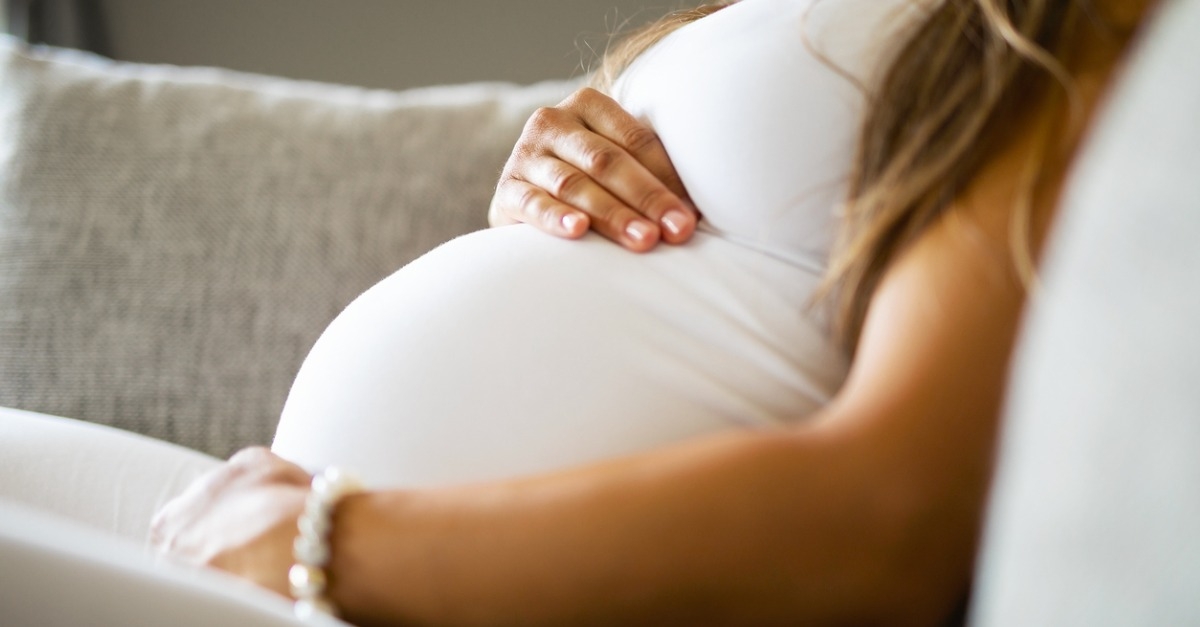What Should You Know About Endometriosis During Pregnancy?
Endometriosis occurs when tissue similar to the uterine lining grows outside of the uterus. It affects 6-10% of women in the United States, can cause severe menstrual pain, and may make conception or pregnancy difficult.
Although 70% of women with mild to moderate endometriosis can become pregnant and have no problems with their pregnancy, (regardless of how their endometriosis is treated) it is important to understand the risk factors and implications when it comes to pregnancy.
What happens during pregnancy with endometriosis?
Sometimes, pregnancy can actually lessen endometriosis symptoms due to increased progesterone levels that occur. Progesterone’s synthetic counterpart, progestin, has been demonstrated to lessen endometriosis pain in 90% of women.
This relief of symptoms is not always guaranteed, however. In some cases, pregnancy can worsen endometriosis symptoms due to the uterus’s continuous expansion, or increased levels of estrogen, which may incite more endometrium growth. Even if pregnancy relieves your symptoms, it is not a cure, and endometriosis difficulties can return afterward.
Pregnancy Risk Factors
Along with fluctuating symptoms, there are a few more conditions to watch for during pregnancy if you have endometriosis:
Placenta Previa (Low-Lying Placenta)
Placenta previa refers to a condition when the placenta covers, or almost covers, your cervix. This can cause bleeding throughout the pregnancy and delivery. Placenta previa is commonly associated with endometriosis and often results in the recommendation of a C-section.
Ectopic Pregnancy
Ectopic pregnancies occur when a fertilized egg begins to grow outside the uterus, such as in the fallopian tubes, and endometriosis increases your risk. While ectopic pregnancies can present in the same ways as conventional ones, consultation with your doctor is needed. Symptoms of ectopic pregnancy include lower back pain, vaginal bleeding, or mild pelvic cramping.
Preterm Birth
A birth is determined “preterm” if the fetus is delivered before the mother’s 37th week of pregnancy. Women with endometriosis have a 33% greater risk of preterm birth. If you have been diagnosed with endometriosis, stay in close communication with your doctor (and your own body) during your first two trimesters.
Miscarriage
A miscarriage occurs when the pregnancy is lost before the mother reaches her 20th week of pregnancy. Endometriosis can significantly increase the risk of a miscarriage, but continuously monitoring with your doctor can alert you to possible warning signs, so you both can take preventative measures that will help you carry to term.
What can you do?
To prepare for pregnancy with endometriosis, you may consider surgery or hormone therapy treatment ahead of time. Surgery involves removing patches of the outside lining, while hormone therapy may reduce excess tissue, although often comes with undesirable side effects. In-vitro fertilization (IVF) is another procedure that may assist with conception, should endometriosis cause challenges.
Above all, prior to conception and throughout your pregnancy, always express your worries to your doctor and monitor your symptoms with them together. Frequent visits, clear communication, and strong awareness of your body can all help minimize complications.
If you have endometriosis or suspect you may, are looking to conceive, or are already pregnant, we are here to provide you with exceptional care. Call us for an appointment at (770) 385-8954 or schedule one online.








